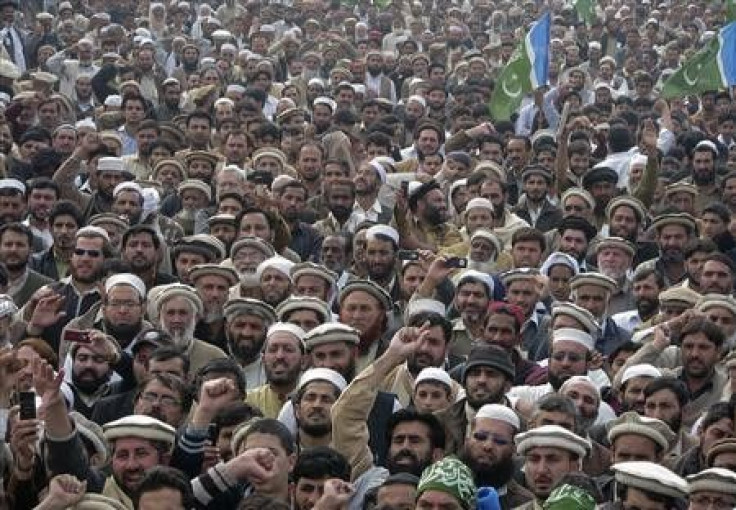Obama calls for release of U.S. prisoner in Pakistan

U.S. President Barack Obama said on Tuesday Pakistan must respect the diplomatic immunity of a U.S. consular employee jailed for shooting dead two Pakistanis, in a case straining ties between the allies.
Obama said Washington was working with Islamabad to secure the release of Raymond Davis, a former member of U.S. special forces who said he acted in self defence in an armed robbery in the city of Lahore last month.
Washington says Davis has diplomatic immunity and should be released but the Pakistani government, fearful of a backlash from Pakistanis already wary of the United States and enraged by the shooting, says the matter should be decided in court.
If our diplomats are in another country, then they are not subject to that country's local prosecution, Obama told a news conference in Washington.
We respect it with respect to diplomats who are here.
Freeing Davis could be risky for the unpopular Pakistani government, already struggling with a stagnant economy, growing discontent over rampant corruption, poverty and power cuts.
Pakistan's al Qaeda-linked Taliban warned earlier on Tuesday it would punish any move to release Davis.
If (Pakistani) rulers hand him over to America then we will target these rulers. If Pakistani courts cannot punish Davis then they should hand him over to us, said its spokesman Azam Tariq.
EXEMPLARY PUNISHMENT
We will give exemplary punishment to the killer Davis.
U.S. Senator John Kerry, chair of the Senate Foreign Relations Committee and member of President Barack Obama's Democratic Party, was to meet Pakistani officials on Wednesday to try to resolve the crisis.
He told a news conference in Lahore the United States Department of Justice would launch a criminal investigation and that Washington was deeply sorry about the deaths and that its position on the Davis case was not an expression of any kind of arrogance on our part.
In fact I am at liberty to tell you today that it is customary in an incident like this for our government to conduct a criminal investigation. That's our law, said Kerry.
I can give you the full assurance of our government today that will take place.
Kerry went on to say that there were ways for the United States to work with the Pakistani leadership to deal with the issue in a quiet, private and appropriate way.
The warning from the Taliban, which has kept up suicide bombings and remains a major security threat despite army offensives, adds to the charged atmosphere surrounding the case.
Cash-strapped Pakistan, one of the largest non-NATO recipients of American military aid, is loathe to risk losing U.S. support by keeping Davis in jail but fears antagonising Islamist groups who see the government as a U.S. puppet.
The issue has become a lightning rod for anti-American sentiment in Pakistan, which the United States counts as an important, if unreliable, ally in its war against militancy.
A police report obtained by Reuters said Davis' assertions that he acted in self-defence were apparently not correct.
The deceased Faizan Haider and Faheem Shamshad each received three bullets in the back of their bodies, which has also been corroborated by the post mortem report, it said.
A lawyer for Davis was not immediately available for comment.
Punjab province Law Minister Rana Sanaullah told Reuters the U.S. embassy could ease public anger by issuing a statement saying Davis will face trial and he will be given justice.
Sanaullah said he did not see the benefit of a close relationship between Pakistan and the United States and blamed Washington for Pakistan's problems.
He warned that by demanding Davis' release the United States was giving clerics and religious parties the opportunity to play with the emotions of the people.
Davis served in the U.S. army as an infantryman and was a member of the special forces. Pakistan's EXPRESS 24/7 television channel on Tuesday broadcast what it said was a video of him being interrogated by police.
Davis said he could not answer questions because he enjoyed diplomatic immunity, it reported. At one point Davis got up to leave then sat back down when he was told to do so, it appeared.
© Copyright Thomson Reuters 2024. All rights reserved.











